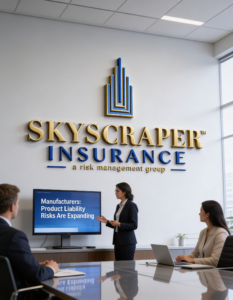Insurance brokers in the tri-state area know that New Jersey recently expanded its NJ disability insurance (TDB) to create one of the most competitive disability coverage packages in the country. The new TDB coverage provides income replacement of up to 85% of a worker’s average weekly salary, capped at $903 per week for 2021.
As of January 1, 2021, New Jersey employees must contribute .47% on the first $138,200 of earnings (capped at $649.54 annually). Meanwhile, employers contribute based on employee earnings, capped at $35,500 total annually.
While the NJ disability insurance premium increase may not have made New Jersey business owners happy, it represented an opportunity for brokers to present the advantages of privatizing TDB coverage for better service, expanded benefits, and cost savings of up to 25%.
As you approach New Jersey businesses to make the transition to a private plan for temporary disability benefits insurance, business owners may have questions about other changes to statutory benefits legislation in New Jersey.
Knowledge is power, and can help you build trust with your customers and prospects when you can answer their questions not just about TDB coverage, but about Family Leave Insurance (NJFLI) and changes to the New Jersey Security and Financial Empowerment (SAFE) Act. The SAFE Act protects victims of domestic violence or violent sexual attacks with 12 weeks of job-protected leave.
What Brokers Need to Know About FLI
Previously, New Jersey business owners with more than 50 employees (living in any state) were required to provide 12 weeks paid leave and job protection to their New Jersey employees to care for an ill or injured family member or to bond with a newborn or newly adopted child.
Changes to NJFLI legislation have expanded the definition of a family member to virtually anyone with a “close association equivalent to a family member.” In addition, employers with 30 or more employees (not 50) must provide FLI coverage to their employees who live in New Jersey. The state has also waived the 7-day waiting period to begin collecting FLI benefits. Finally, NJ employees do not have to use two weeks of PTO before filing an FLI claim; they can collect benefits and PTO concurrently or wait until their FLI has run out to use their PTO.
The SAFE ACT and NJ Family Leave Insurance
Employees who file for leave under the SAFE Act now also qualify for FLI benefits, without having to use their PTO first. Again, they can use PTO concurrently or after FLI benefits run out. The SAFE Act applies to any New Jersey employer with 25 or more employees in the organization.
Why It Pays for Business Owners to Privatize NJ Disability Insurance
The new FLI legislation isn’t putting any money in brokers’ pockets. But it’s important to know how it works to guide your customers toward the right benefits for their employees
Privatizing NJ disability insurance (TDB) does not affect FLI coverage, but does provide New Jersey business owners with the white-glove service they deserve, a chance to bundle ancillary benefits for added savings, and benefits that match or exceed the state plan at an equal or lower cost.









